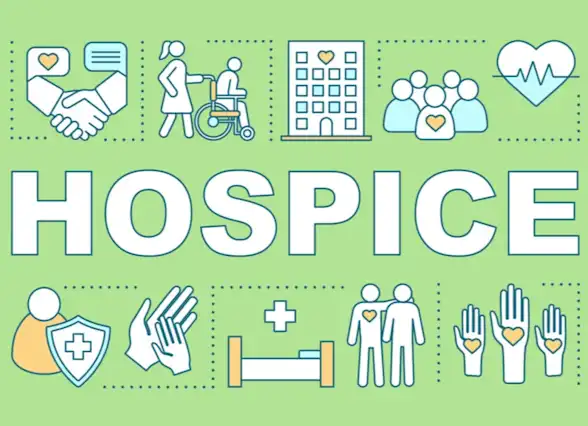Caregiving Challenges, Hospice
Hospice is not a death sentence and it is not giving up. Understanding hospice and its intentions can bring relief to you and your loved one.
Get insurance benefits, legal documents, and medical records in one place

Helpful Highlights
Hospice is an invaluable service that remains widely misunderstood and misinterpreted.
Hospice does not expedite death and its purpose is not to keep your loved one overmedicated and unaware.
Hospice is as much for the family as it is for the recipient, and includes many supportive resources and services for everyone involved.
The term 'hospice' gets tossed around a lot (often incorrectly) and is almost always equated with death rather than life. A great many (misinformed) assumptions are made about hospice, and therefore many people - if not most, in fact - do not really know what it is or understand it.
Medicare and Medicare Advantage plans have coverage for hospice. Hospice is covered by Medicare Parts A, B, and C.
So... Hospice - What is it?
Foremost, hospice care does NOT mean that all treatment stops.
It does NOT mean giving up and it is NOT a death sentence.
It requires a diagnosis of 6 months or less of life remaining.
It requires consent and enrollment, it is not automatic. It is also always a choice. Your loved one may leave hospice at any time, as well as return later.
Care is provided by a hospice company and overseen by an RN who specializes in hospice. The care team consists of many healthcare professionals, though, all experts or certified in hospice care. Family caregivers are also included on the hospice care team!
Quality and comfort are the priorities. Care focuses on relief of pain and other troublesome symptoms, as well as mental and emotional well-being.
Care does not seek to cure the serious and life-limiting condition, and requires that curative treatments for the serious illness only be weened/stopped, usually within 30 days.
It does require a do not resuscitate order (in the event of cardiopulmonary arrest, CPR or other life-saving measures will not be performed).
Hospice provides physical, mental, and emotional end-of-life support for your loved one and the family, including education and discussion on the dying process.
Hospice provides increased comfort care at the end of life, which is more than just morphine.
Services are provided wherever the person resides: home, assisted living, nursing home, long-term care, and even inpatient (in a hospital) in some cases.
You are encouraged to contact the hospice RN first to report any changes, events, or concerns.
Events or injuries not related to hospice WILL still be evaluated and treated (a bone fracture, wound, or infection, for example).
It is best to talk directly with a hospice professional, as your loved one's provider may not have all the information and details you need.
Asking for information and details from a hospice provider, or requesting a formal hospice consult, is always free and very helpful. Hospice professionals are sensitive, considerate, and never pushy. They will not try to sell you on their service.
Also see our Guide on Caregiving Challenges, Palliative Care.
No content in this app, regardless of date, should ever be used as a substitute for direct medical advice from your doctor or other qualified clinician.
Get more support and guidance on insurance benefits, medical records and legal forms.
Helpful brings together your insurance benefits, legal documents, and medical records in one personalized place — so you always know what you have, and never have to search again.

Technology for Health Tasks. Mental Health for the Tough Stuff.
Helpful connects your medical records, insurance, and caregiving tasks automatically. And when you need more than logistics, a therapist is here to guide you.
In-Network and Covered
For Individuals, Couples and Families
HIPAA Compliant, Data Stays Private


Healthcare Tasks Simplified

From syncing records to spotting drug interactions, Helpful does the heavy lifting, turning complex health info into clear tasks and showing you benefits you can actually use, giving you clarity and control over your care.

In-Network Mental Health

Our licensed therapists are here to support you and your loved ones through stress, burnout, and life’s hardest moments, with an inclusive, compassionate approach that works with most insurance plans.

Create Legal Documents

Plan ahead by creating will, trusts, advance directives and more, that ensure your wishes are honored in the event you can’t speak for yourself -with Helpful guiding you every step of the way.